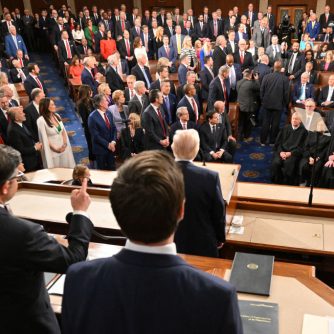In a recent episode of “Carolina Newsmakers,” host Don Curtis engages in an insightful conversation with Dr. Mike Walden, an emeritus professor of agricultural and resource economics at North Carolina State University. This episode covers a wide range of economic topics, providing listeners with a thorough understanding of the current economic landscape in North Carolina and beyond.
Episode timeline
Inflation and Its Impact
The discussion begins with a focus on inflation, a pressing issue for many. Dr. Walden explains that while the pace of price increases has slowed, inflation remains a significant concern. Prices have risen by 20-25% over the past three years, but salaries have not kept pace, leading to a gap that affects consumers’ purchasing power. He emphasizes that inflation is a daily reality for people, seen most clearly in the costs of groceries, gasoline, and borrowing rates. The Federal Reserve’s role in managing inflation through interest rate adjustments is highlighted, with Walden noting the delicate balance the Fed must maintain to avoid pushing the economy into a recession.
The Labor Market
The conversation then shifts to the labor market. Despite the challenges posed by inflation, North Carolina’s labor market remains strong, with significant job growth and low unemployment rates. Walden attributes this to the state’s rapid growth and the economic shifts caused by the pandemic. Many entry-level workers retrained during the pandemic, qualifying for higher-paying jobs, and employers have had to raise wages to attract and retain talent. He also discusses the potential impact of unionization in traditionally right-to-work states like North Carolina, suggesting that while unions might gain some foothold, the strong demand for labor gives employees significant bargaining power.
The Federal Reserve and Interest Rates
Dr. Walden provides an in-depth analysis of the Federal Reserve’s strategies for controlling inflation, including raising interest rates. He explains that while higher interest rates can cool down an overheated economy, they also make borrowing more expensive, affecting everything from home mortgages to credit card debt. Despite these challenges, he praises the Fed for managing to lower the inflation rate without causing a recession. However, he cautions that interest rates are likely to remain high for the foreseeable future, impacting sectors like homebuilding and real estate.
The Impact of Federal Spending
The role of federal spending in the inflation equation is another critical topic. Walden notes that increased government borrowing can drive up interest rates, exacerbating inflationary pressures. He calls for fiscal responsibility and suggests that reducing government spending could help moderate these effects. However, he acknowledges the political challenges of implementing such measures, especially during an election year when both parties are reluctant to take actions that might be unpopular with voters.
Rural and Urban Economic Dynamics
The episode also explores the contrasting economic dynamics between North Carolina’s urban and rural areas. While cities like Raleigh and Charlotte continue to grow and attract businesses, many rural areas face economic stagnation. Walden expresses optimism about the potential for a rural revival, driven by trends like remote work and improved broadband access. He envisions developers creating remote work communities in rural areas, where land is cheaper, and the cost of living is lower. This shift could help balance economic activity across the state, providing new opportunities for rural residents.
Education and Workforce Development
A key theme throughout the discussion is the importance of education and workforce development. Dr. Walden highlights the need for educational institutions to adapt to changing economic conditions and technological advancements. He emphasizes the role of community colleges in providing specialized training for emerging industries and calls for greater flexibility in the education system to meet future workforce needs. The conversation underscores the importance of preparing workers for the jobs of tomorrow, particularly in the face of automation and artificial intelligence.
Social Security and Long-Term Economic Stability
The episode concludes with a look at the long-term stability of the Social Security system. Walden explains that while Social Security is not in immediate danger, it faces significant financial challenges in the coming decades. He predicts that a bipartisan commission will eventually propose solutions, likely involving increased taxes and adjustments to retirement age. He stresses the importance of addressing these issues sooner rather than later to ensure the system’s sustainability for future generations.
Final Thoughts
Dr. Walden’s insights on “Carolina Newsmakers” provide a comprehensive overview of the economic issues facing North Carolina and the nation. From inflation and labor market dynamics to federal spending and rural development, his analysis offers valuable perspectives for policymakers, business leaders, and citizens alike. As the state navigates these complex challenges, informed discussions like this one are crucial for shaping a prosperous and equitable future for all North Carolinians.





